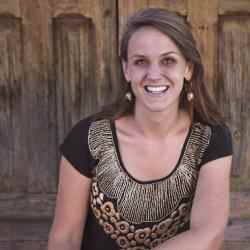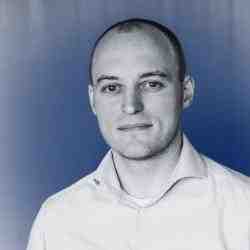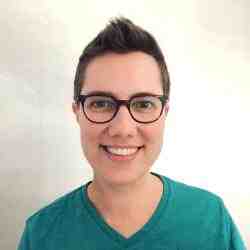Introducción
Mark Swift is creating a social movement for health that mobilizes and empowers communities to take control over their own health and wellbeing. He broadens the understanding and definition of healthcare, allowing practitioners to refer patients to non-clinical solutions within local communities thereby treating the underlying causes of illness by both unleashing and bolstering the resources and talent of these communities.
La idea nueva
Mark Swift is creating a social movement for health that mobilizes and empowers communities to take control over their own health and wellbeing. Mark broadens the understanding and definition of healthcare, allowing practitioners to refer patients to non-clinical solutions within local communities thereby treating the underlying causes of illness by both unleashing and bolstering the resources and talent of these communities.
Despite a growing evidence base and political recognition, the current healthcare system in the UK is poorly equipped to practice preventative and holistic healthcare relying heavily on reactive and clinical solutions. Increasingly frustrated, Mark left his secure job in the National Health Service (NHS) to start Wellbeing Enterprises in 2006 to develop an approach that mobilises people power-- the assets and resources that can be integrated in healthcare as an alternative or complimentary treatment for patients with conditions that are caused or exacerbated by social issues.
Wellbeing Enterprise (WE) works at the community level to develop referral pathways and build the capacity of communities to meet and reflect the growing demand for non-clinical options. As such, WE trains so called Wellbeing Officers who are placed alongside nurses and GPs to supplement the current healthcare system to de-pathologize wellbeing and develop bespoke healthcare experiences that put people in charge of their own health. They work in 1:1 sessions, conduct home visits, and refer individuals to a social prescription model depending on their capabilities and needs. Wellbeing Officers begin by recognising the strengths of the individual and the community to build upon existing opportunities rather than focusing on the problem. WE calls this methodology an asset (or strengths) based approach that provides the foundation of their work to tackle the social circumstances that determine health while equipping patients with the tools and resources they need to help themselves. In practice this can be arranging for their boiler to be repaired, inviting them to courses on sleep, stress or self-esteem to recommending community-led activities such as tango dancing or Nordic walking. At the same time, WE builds and develops resources in these communities so there is a diverse supply of volunteer organisations and a culture of social entrepreneurship. These techniques are often put under the practice of social prescribing, a way of linking patients in primary care with sources of support within the community. While the concept of ‘social prescribing’ is common in rhetoric, its practice and its ability to be integrated into the existing health system has been limited until now.
To influence the healthcare system at large, Mark positions himself as a thought leader to promote a more human-centred healthcare approach and introduce social prescribing as best practice in the UK. He has collected the world’s largest data set validating community centred approaches, with outcomes exceeding NICE (National Institute for Health and Care Excellence) approved clinical treatments. Mark also worked with the University of Manchester to carry out a comprehensive cost-benefit analysis which shows that over a 3-year period with £1.4 million worth of public sector investment Wellbeing Enterprise generated cost savings to the system approximately £12.7 million meaning that for every £1 invested in these community centred approaches, the NHS had £8.90 return to the system, including cost savings to health, in productivity and employability, and improved recovery time.
To date, WE has scaled to four cities across the North-West of England, including Liverpool, and is working with dozens of Wellbeing Officers and over 40 volunteers in 17 GP practices and two large hospitals. In addition, Mark has launched a consultancy service to train health care workers all around the country on how to implement social prescribing and asset-based approaches to wellbeing. Through his consultancy Mark also begins what he calls ‘courageous conversations’ collaborating and reaching out to unlikely partners such as pharmaceutical companies and public health practitioners who aspire to integrate and practice wellbeing and community centred approaches within their own work.
El problema
In January of 2017, the British Red Cross declared that the UK’s National Health Service (NHS) is facing a ‘humanitarian crisis’ in the wake of a funding deficit and rising demand. The NHS has faced chronic bed shortages, long waiting periods for care, while continually being understaffed and underfunded. Recent figures show that 80%) of trusts that provide acute medical services, such as emergency care and surgery, have moved into deficit resulting from unprecedented financial and operational pressure. The NHS is almost entirely focused on acute care, unable to invest into preventative measures and hence caught up in an incredibly expensive cycle of ‘healthcare’. Practitioners are well aware that more care needs to take place in the community, rather than in the hospital, but discharging patients has become impossible due to deep Government funding cuts for social care and civil society organizations.
Increasingly, research has drawn direct correlations between health inequalities and social circumstances. In the Northwest of England, they are particularly severe. Levels of deprivation are higher than average in places like Halton, with about 26.7% of all children living in poverty. Life expectancy for both men and women is a staggering 9 years lower in areas of greatest deprivation when compared with the England average and mental health problems account for the largest cause of ill health and disability in Halton.
However, healthcare professionals are ill-equipped and dis-incentivized from looking into deeper, underlying causes of ill health. With only 10 minutes available per patient, few resources, and no training in wellbeing, doctors and nurses cannot possibly address the holistic needs of their patients during examinations. According to research commissioned by Nesta, 9 out of 10 GPs thought their patients would benefit from social prescribing and 4 out of 5 thought social prescribing should be available for GPs; yet only one-sixth of GPs practice social prescribing and only 9% of patients’ report having had a social prescription.
But even doctors committed to non-clinical approaches to health struggle to point patients in the right direction. While solutions might exist in the community, it is impossible for doctors to identify and navigate such opportunities, let alone having any assurance on quality. A dominant pharma industry as well as a conventional and un-imaginative training system for junior doctors further impedes innovation in the health care system, dis-incentivizing and demotivating practitioners from alternative health care approaches and preventing citizens from being part of the solution.
La estrategia
Mark Swift founded Wellbeing Enterprise to empower citizens to create community-based healthcare while allowing healthcare professionals to tap into those resources. To mainstream community-based healthcare solutions and social prescribing, Mark works on three levels: designing and delivering a community centred wellbeing methodology; leveraging evidence and research to influence and build consensus around the intervention model; and lastly mainstreaming these practices into the National Healthcare System.
First, Mark developed a methodology for community-based healthcare. Wellbeing Enterprise identifies assets and strengths of a community, maps wellbeing opportunities (from meditation classes to elderly care and self-esteem courses) and creates referral pathways. Wellbeing Officers deliver one-to-one consultations; referring patients to non-clinical programmes through social prescribing initiatives, and lastly encourage patients to create wellbeing projects for themselves and their communities. To meet the rising demand for opportunities that comes with social prescribing, Wellbeing Enterprise uses what they call an asset-based approach– sourcing, vetting and listing existing courses as well as encouraging and funding citizens to launch new initiatives. To date, WE has distributed over £200K of funding for community led initiatives. These have resulted in the launch of local choirs, ukulele groups, cycle clubs and many other community-owned activities.
Patients can either self-refer to meet a Wellbeing Officer or are referred by GPs who suspect underlying social issues triggering physical symptoms or patients who have high reoccurring admittance. All Wellbeing Officers undergo intensive training before being placed in GP practices and constantly update the directory of opportunities that they and GPs can prescribe into. As opposed to the 10 minutes that GPs have per patient, Wellbeing Officers dedicate 45 minutes to each patient and meet on an on-going basis for up to 3 months, tailoring a bespoke action plan for each individual. To ensure a seamless integration with the clinical work of GPs, Wellbeing Officers are included in the practice just like staff, joining team meetings and having access to patient records. As of today, Wellbeing Officers deliver social prescribing services in all 17 GP practices in Halton as well as a large hospital in Warrington, reaching over 28,000 people. The model has been recognised as best practice by the public health sector, commissioning groups, and the NHS alike.
The second strand of Mark’s strategy lies in proving the impact and cost-effectiveness of his model through independent research to ultimately mainstream social prescribing in the NHS. Mark knew that to scale the model, he had to convince all health care professionals, those longing to integrate wellbeing into practice as well as those resistant to non-clinical approaches to health. To tackle these barriers, Mark has gathered the world’s largest data collection proving a range of health outcomes. Using thousands of case studies including qualitative and quantitative data, Mark is able to prove that community-based care and social prescribing help to augment clinical outcomes as well as reduce demand on over stretched public services. A study found that after three-month follow-ups with Wellbeing Officers, patients had benefited from a 70% reduction in depression symptoms, an 80% improvement in well-being levels and 53% improvement in self-reported health status. Working alongside public health economists, Wellbeing Enterprise calculated that the wider economic and health benefits of the programme has a direct link to public value indicating that for every £1 spent on the programme 55p of future savings were made to the NHS. Moreover a recent independent social impact report that reviewed Wellbeing Enterprises’ social prescribing approaches has evidenced savings of £12.14 to public finance for every £1 invested.
The last strand of Mark’s strategy is to transform the British healthcare system towards a focus on wellness, rather than illness shifting healthcare from hospitals into the community. Mark works with stakeholders across the healthcare system, from Clinical Commissioning Groups (CCGs) who are crucial in funding social prescribing models on a local level, to local authorities and pharmaceutical companies. Knowing that the NHS is currently struggling under increasing demand and decreasing funding, Mark strategically taps into this need and proves to decision-makers the financial as well as social viability and positive externalities of social prescribing. Moreover, he proves community powered health care as a source of civic engagement and community integration mobilizing communities through volunteering while simultaneously shifting mindsets about the alternative implementation and structure of a national healthcare system.
Having scaled the Wellbeing Enterprise model across the North West of the country, Mark currently focuses on scaling nationally through a consultancy model, allowing GPs across the country to take up the Wellbeing Enterprise model, tap into community-based healthcare and practice social prescribing to complement their clinical prescriptions.
La persona
Mark was born into a working-class family in St. Helens, an industrial town outside Liverpool. His father was a lorry driver and his mother a sewing machinist. Mark attended a local state school where he was one of the top students throughout his education. Mark was entrepreneurial from an early age. At the age of seven he got involved in theatre and ran his own play and at age 8 he created and launched a school magazine. At the same age, Mark also led a campaign to ban foxhunting in the region after hearing about the controversial tradition. He successfully gathered over 160 signatures and had his message publicized in the local paper. Through his teens he remained active both in his school and politically, organising marches and appointing himself as treasurer for the school bank.
Mark was the first one in his family to go to university where he earned a degree in bio-chemistry. After graduating, Mark was awarded a scholarship for a PhD but had serious concerns around spending his life work in a lab. During this period Mark entered a difficult phase of his life. Trying to get himself out of the house, Mark started to volunteer with several local charities from working with youth offenders to volunteering with the mental health charity MIND. Mark credits this period of volunteering as the turning point in his life. He gained back his self-confidence, discovering his talent in energising and organising those around him. He soon started a part-time job with the NHS, running a health promotion project for people who had been long-time unemployed. He later became a health improvement specialist with the NHS with a focus on mental health and suicide prevention. A few years later, Mark was promoted into an NHS clinical commissioning group focused on clinical quality – an experience that continues to inform much of his current work.
While his job at the NHS was well paid and prestigious, Mark felt that he had no space to innovate and grew increasingly frustrated with a very reactive and bureaucratic system. He realized how the entire healthcare system was set up to treat illness, rather than promote wellness particularly in regards to funding and resource allocation. He also noticed how so often those who came in to improve and innovate the system became demoralized. However, his own experience facing mental health challenges as well as his experience with community work and volunteering gave him a unique insight into the power community action and social integration can have in healthcare.
While still working full time, Mark began developing a methodology for community-based healthcare. In his personal time, he launched health promotion campaigns, including a ‘positive thoughts campaign’ in which he commissioned posters with positive affirmations on a fleet of buses that travelled across Merseyside to promote mental wellbeing. After working for the NHS for over seven years, Mark left his job to pursue his passion and turn his experience and vision into an organisation. It was a big step and a financial risk, sacrificing a high salary and pension scheme and with a limited household income, particularly as Mark’s partner worked as a teacher at the time. Mark founded Wellbeing Enterprises as a volunteering group in 2015 and registered it as the first Community Interest Company in the UK focusing on community centred health and social prescribing the following year. Starting as a local initiative in Runcorn, Mark lobbied Clinical Commissioning Groups to help him implement his model in local GP practices all over the county and over five years the number of GP practices with Wellbeing Officers grew from 3 to 16.
Today, Mark is a recognized thought leader in the field of social prescribing and community-based health care. He is a serial entrepreneur, constantly launching new businesses and ideas. Currently, Mark is developing an app that allows people to map and share their ‘happy places’ using GPS indicators. He is hoping to turn everyone in the world in to a ‘treasure hunter’ to develop the most comprehensive citizen led happy map in the world. Most recently, he also set up a novelty gift company which donates a portion of profits to LGBTQ charities. Next, Mark will pursue a practiced-based PhD, studying the role and importance of changemaking and social entrepreneurship in health. He says he is still orbiting the NHS, gaining knowledge, evidence, and practical experience only to later bring his innovation back into the mainstream and inform an outdated system with innovation and entrepreneurship.

 Tile image
Tile image


